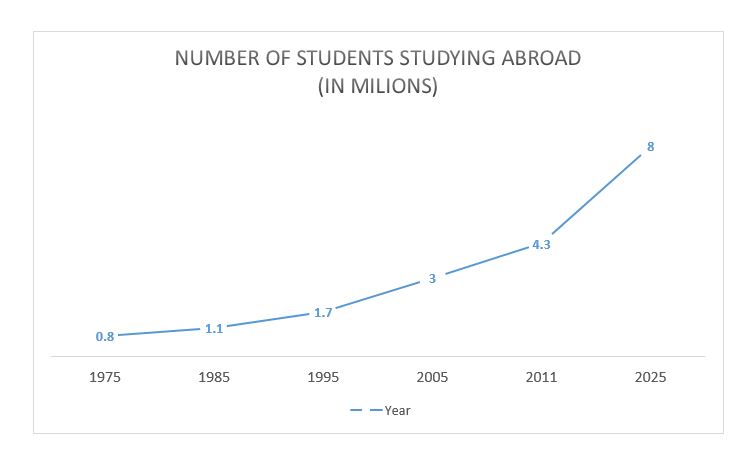UK Plummets as a Preferred Study Destination, Guess who is Gaining from it?

The total number of international students traveling overseas for higher education has grown rapidly over the past 36 years, from 8 Lakh students in 1975 to 4.3 million in 2011, and this figure is only set to rise, with an additional forecast of figures touching 8 million by 2025. However, in the UK, the second most visited study abroad destination after the US, the number of international students enrolling in higher education has been fairly flat – rising by just 4.1 percent over academic years 2012-13 to 2016-17. To add further to their woes, there are concerns that there could be a considerable drop in incoming students from Europe after Britain’s much-debated exit from the European Union, termed as Brexit.
Universities in the UK have hosted over 442,375 international students in 2016-2017, of which close to 30 percent belong to the European countries. With the government in the United Kingdom promising European Union students, who start their programs during 2019-20, to be eligible for UK domestic tuition rates and UK loan funding for the duration of their programs, the real question that needs to be asked is, what after that? The Brexit is a ticking time bomb that is only going to add more difficulties to European students wanting to travel to the United Kingdom for higher education. Once the Brexit goes through, students from Europe would be required to pay full-cost international student fees and not the fees they currently enjoy.
The decline in numbers of international students studying in the UK over the last few years is worrisome and does not entirely do justice to the global success of UK Universities. Research shows, how tuition fees and cost of living are a big worry for many international students. Poor exchange rates and high costs (tuition + living) are pushing international students to pursue UK courses outside the country, which includes studying via satellite campuses or distance learning – or a combination of both.
Predict your IELTS, TOEFL, and PTE in just 4 steps!
The other equally important factor that is troubling students is job prospects in the UK after completing their graduation. For international students, studying in the UK involves making a lot of sacrifices to meet study costs. However, getting a job after graduation is particularly hard for international students, now more than ever.
Changes in student policies to battle the nuisance of counterfeit student visas has done more harm than good. Previously, non-European graduates hoping to work in the UK had two years to find a job. However, with the new policy in motion, this had been reduced to 4 months and after much criticism from several sections of the society, students who have completed their bachelor’s and master’s studies have now been granted six-month post-study leave. However, this is still not a sufficient enough window, considering students would have to find an employer willing to sponsor them to switch to a Tier 2 visa (General Work Visa) from a Tier 4 visa (General Student Visa). And while under the Doctorate Extension Scheme, Ph.D. graduates get one-year post-study leave to look for work, their university must be willing to continue being their sponsor.
That is not all, students who wish to work beyond six months after graduating from a university in the UK would require a job with a minimum salary of at least £20,300 a year - and it could be even higher for specific sectors. A mechanical engineer would be required to earn a minimum of £24,100, an electrical engineer £23,600 and a design engineer £24,800. Given the UK graduate job market has seen better days – many international students are forced to head home shortly after completing their graduation because they are not able to meet the requirements.
Slow visa processing, high levels of surveillance for non-European Union international students and difficulty in obtaining post-study work visas have made students shift their preferences to the USA, Canada, Australia, and Germany. With state-of-the-art facilities and research centres and the introduction of student-friendly policies, UKs loss has become others gain. If reports are to be believed, as the US continues to enjoy the top-spot in hosting international students, Australia will soon overtake the United Kingdom as the second most preferred destination for international students wanting to travel overseas for higher education.
- Universities in UK175 Universities
- Universities in USA1037 Universities
- Universities in Canada174 Universities
- Universities in Australia122 Universities
- Universities in Ireland32 Universities
- Universities in New Zealand70 Universities


